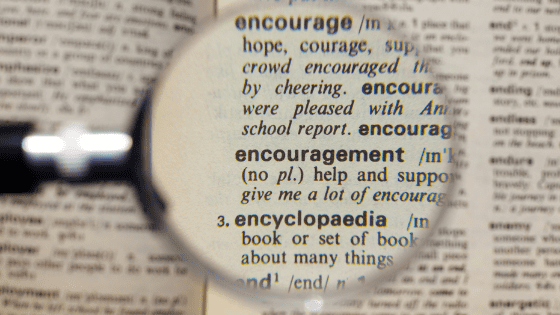How to Deal with Toxic Friends
Have you ever had a friend so toxic they seem to take over your life?
This could be in the form of literally taking over your time, or mentally exhausting you 24/7. There could be science to back up this friendship drain.
Researchers at UCLA found that stressful friendships can even cause inflammation which contributes to diabetes, heart disease, and even cancer. This occurs due to increasing levels of protein in the body.
Of course, it is highly unlikely that having toxic friends alone will result in illness. However, we can all benefit from fewer toxic interactions every day. Here are our favorite ways on how to deal with toxic friends.
Set Healthy Boundaries
Despite being the most common relationship solution, having an honest conversation and setting healthy boundaries is the most powerful way to change a relationship foundation.
Having a truthful discussion about setting boundaries can be extremely stressful. This often falls outside of individuals’ comfort zones. However, pushing outside of your comfort zone in this case is often the most direct solution to fixing or clarifying a seemingly toxic friendship.
Give our post on What You Need To Know About Your Comfort Zone a read for more information about your comfort zone and how to safely grow it.
Some healthy boundaries you can set include whitelisting or blacklisting conversation topics, or clarifying hours when it is or is not appropriate to text or call. For example, if you’d rather not discuss politics with a friend, this is the time to tell them.
While it would be convenient if we all had the automatic assumptions of what is or isn’t appropriate, unfortunately, this is rarely the case.
Remember that if your friendship is physically unsafe, having an honest conversation could result in violence. In those cases, it’s often the best choice to avoid direct confrontation and instead create plans for physical and relationship exits.
Toxic Friend “Schedule”
So maybe your toxic friend is respectful of your clarified availability. But what if they still occupy your mind or you are unable to stop reaching out? It can be hard to break habits even if they are hurtful to us.
Sometimes, we are also guilty of reaching out for companionship just to avoid loneliness. This occurs even if the friend being reached out to isn’t a good influence.
In these cases, it can be beneficial to set up a toxic friend “schedule,” for yourself. Give yourself hours in a day or week during which you’re allowed to contact or respond to your toxic friend. Next, strive to adhere to these times.
If the toxicity of the friendship is because of over-dependence from you or your friend, allocating a set amount of time can quickly bring the friendship back to appropriate levels.
Taking a Break or Ending a Friendship
It’s always sad to think about ending a friendship. After all, toxic friendships don’t necessarily start that way- that’s why we still call them friendships! However, there are clear signs that tell you when a friendship is unsalvageable.
TODAY.com and SELF magazine performed a joint survey on toxic friendships. 83% of survey responders confessed to holding on to toxic friendships simply because “breaking up” with a friend is difficult.
But just because it’s difficult doesn’t mean it’s impossible or not the best course of action! If setting new boundaries or a self-schedule doesn’t make your friendship more healthy, going cold turkey may be the only way forward.
You can have this conversation in person, over the phone, or via text. When choosing which way to do so, choose one that will be physically safe for you. Next, outline clearly and relatively quickly, that you no longer want to communicate regularly because the relationship has become unhealthy for you.
You can disclose as much information as you would like, keeping in mind that you have already made up your mind to end the relationship. Be safe, concise, and clear, and don’t forget that you’re doing this for your own well-being.
When You’re Unsure About a Friendship
Toxic friends come in all sorts of shapes and sizes. We can explore the most obvious ones in another post, but what do we do when we’re unsure if a friendship is toxic or not?
Some friendships are not overtly toxic but are also not obviously healthy or beneficial. We hate to think of having friends as a transaction, but in some ways, this is true. You should offer happiness and support to your friends. And as a transaction, you should receive the same.
So if you are unsure about a particular relationship, consider whether or not this person adds value to your life. One of my favorite quotes on friendship is from Ed Cunningham: “Friends are those rare people who ask how we are and then wait to hear the answer.”
Sure, sometimes we have friends who are not naturally great listeners. But real friends should care about your life and well-being. Give our article on 34 Inspiring Friendship Quotes a read for more ideas on what could define a great friend.
Moving on from Toxic Friendships
For better and for worse, humans are social creatures. We crave company and hate being alone. Unfortunately, that means we are bound to meet others that simply don’t match our energy.
Experiencing a toxic friendship is never fun but can be taken as an opportunity for growth and self-learning. Maybe you’ve learned which of your values you need your friends to share. Maybe you’ve learned that something you are more lenient with, others have a hard line drawn for.
No matter the conclusion you choose to end a toxic friendship, make sure you take the time to self-reflect and heal afterward. We all have limited space in our hearts and brains, and rejuvenation takes time. You’ve got this!
Ready to learn more about relationship building and how to be the best you you can be? Read more here:
- Renew Your Mind and Create A Positive Mindset
- 20 Funny Gratitude Quotes; Because Life Isn’t Always Rosy
- The Importance of Helping Others
- Inspirational Buddha Quotes On Love, Happiness & Change
- 12 Powerful Quotes About Smiling Through the Pain






